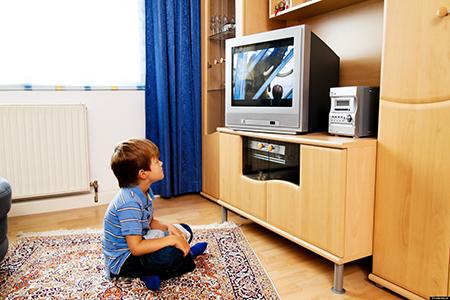
Researchers examined test results for 807 kids between five and six years old assessed at the start of kindergarten for basic skills like counting, letter recognition and sorting blocks by pattern and shape. They also looked at parent surveys about how much time each day kids spent watching traditional television sets or other screens, according to Reuters.
For kids at the highest income levels, there wasn’t any connection between the amount of TV children watched and how well they did on the tests. More television time was tied to just a modest drop in test results for students from average income households — about $74,000 a year for a family of four.
Children at or near the poverty line, about $21,200 a year for a family of four, had a pronounced drop in test scores when they watched a lot of TV each day.
“Watching too much TV — more than two hours per day — was negatively associated with the development of mathematical abilities and executive function — skills engaged in the pursuit of goals, including inhibition, attention, working memory, and cognitive flexibility,” said lead study author Andrew Ribner, a psychology and education researcher at New York University.
“We find some evidence that the negative association of television viewing with math ability is at least partially through executive function, which others have shown is strongly related to math ability throughout the academic life span,” Ribner added by email.
Last year, the American Academy of Pediatrics recommended that preschoolers watch no more than an hour of TV a day; down from two hours in 2001 guidelines.
Parents should watch with kids and show them only ‘high quality’ programming like Sesame Workshop and PBS, the AAP recommends.
It’s possible that some of the differences in how much television time influences school readiness for rich versus poor kids in the study might be explained by the type of content children watch, Ribner said.
Children in the study watched an average of 2.2 hours of television a day, Ribner and colleagues report in the Journal of Developmental and Behavioral Pediatrics.
Researchers didn’t have data on the type of programming children watched and they also didn’t know anything about viewing circumstances to see if parents were in the room or what else was happening around kids while the TV was on.
The study also wasn’t a controlled experiment designed to prove whether or how television time directly influences school readiness
